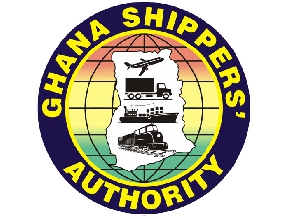The Ghana Shippers Authority (GSA) on Thursday organized a sensitization workshop for Haulage Truck Drivers in Tema with the aim of equipping them with the needed knowledge on transit traffic and its related issues.
Opening the workshop, Ms Benonita Bismarck, Chief Executive Officer of the GSA in a speech read on her behalf said the sensitization programme which was the third in a series was part of measures to find solutions to challenges of the sector while bringing world-best practices to make it efficient and competitive.
Ms Bismarck called on all stakeholders to commit to the facilitation of transit trade with a view to ensure that Ghana’s corridor remained one of the most attractive in the sub-region with an estimated GHC134 million annual revenue.
She added that the workshop was to address some fundamental issues affecting transit trade such as road safety issues, carriage of hazardous or dangerous cargo, and the need to avoid unnecessary costs in the shipment process.
She said dangerous goods such as chemical products posed risks to human safety, property and the environment if accidentally released during transportation in commerce.
She said it was therefore important that beyond government efforts at regulating the transportation of hazardous cargo, regular sensitization of key stakeholders were conducted to serve as a risk prevention and mitigation measure.
“It is the avowed commitment of the GSA, that no effort should be spared in ensuring that truck drivers are regularly sensitized and fully equipped on the international conventions, national/regional regulations, directives and measures that relate directly to your operations, in order to engender full compliance.
She stated that since 2018, GSA had been undertaking quarterly fact-finding missions along the major transit corridors in Ghana with the latest one undertaken from May 24 to May 28, 2021 on the Tema-Hamile corridor.
The exercise she said revealed that there were 55 police and MTTD stops out of which 40 were permanent barriers and 15 temporary, two Forestry Commission posts, nine Customs checkpoints, four immigration checkpoints, and four axle load stations located at Tema motorway, Akom, a mobile axle weighbridge at Doboro, and Sawla.
Mrs Esther Gyebi-Donkor, General Manager, Marketing and Corporate Affairs, Ghana Ports and Harbours Authority (GPHA) chairing the workshop said it was important that stakeholders work together to ensure the efficiency and safety of the country’s haulage transport sector.
She said within the operations of transit trade in the maritime economy one key performance indicator of an efficient transit logistics value chain was transportation.
Mrs Gyebi-Donkor said it was incumbent on truck drivers to ensure that they were abreast with Ghana’s road traffic and safety regulations to guide the movement of trucks and cargo along the country’s major highways.
She said to improve conditions for truck drivers, the GPHA recently invested heavily in the construction of the truck park at Paga, saying the authority’s efforts in investing into transit trade also yielded gains as “transit traffic for Port of Tema has increased from 862,377 metric tonnes in 2016 to 1,454,868 metric tonnes in 2020”.
Participants at the workshop were sensitized on “The road safety regulations for haulage trucks along Ghana’s major transit corridor” by Mr Daniel Hardy Wuaku, Deputy Director, Planning and Programmes, National Road Safety Authority.
Mr Lovelace Sarpong, Deputy Director at the Environmental Protection Agency (EPA) educated participants on “the risk factors and the precautionary measures to be adopted by haulage truck drivers in the transportation of dangerous goods along the transit corridors”.
Mr Mathew Edmond Sacket, Freight and Logistics Officer at the GSA, talked on; “the haulage truck driver’s role in avoiding unnecessary costs in the shipment of transit cargo through Ghana’s ports”.
Business News of Friday, 4 June 2021
Source: GNA

















